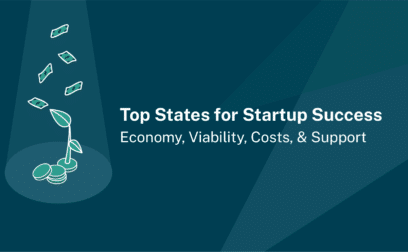TABLE OF CONTENTS
For some loans from the U.S. Small Business Administration (SBA) for commercial real estate or equipment, you may need to provide hazard insurance on the collateral.
The hazard insurance will protect your collateral from accidents, bad weather or other covered issues. SBA lenders use proof of insurance as an indicator of lower risk in borrowers because it allows them to collect your assets if you can’t repay your loan.
Learn more about hazard insurance, including which SBA loans require it and what coverage you need.
Page written by Kat Cox. Last reviewed on August 12, 2024. Next review due October 1, 2026.

Hazard insurance, also known as commercial property insurance, protects your business’s physical property, including real estate or equipment. Your SBA lender or certain SBA loans may require that you get hazard insurance to protect your property if you take out a loan that requires collateral.
Generally, hazard insurance protects commercial property such as rented or owned buildings or equipment from the following types of damage:
Some SBA loans, such as Economic Injury Disaster Loans and physical disaster loans, require hazard insurance. If your property is in a flood plain, you will be required to get flood insurance to apply for an SBA loan on the property. You may also be required to get business insurance if you apply for certain SBA loans over $500,000.
Because SBA loans are administered by partner lenders, they can require you to get insurance for smaller loans in certain cases, as well. When you purchase the insurance, you may list the lender as a loss payee, in which case they will be able to claim any insurance payouts if you have to file a claim.
Luckily, the SBA may consider the amount of money you pay for the insurance as part of your loan payment, reducing your loan payments.
You should plan to provide proof of insurance if you’re applying for the following SBA loans:
Some loans may require one type of insurance and not another. For instance, SBA microloans will require flood insurance but may not require hazard insurance. Your lender or SBA representative will be able to help you determine if you need hazard insurance or other insurance policies for your SBA loan.
If your commercial real estate or equipment is already covered by insurance, you may already have hazard insurance. Check your policy or talk to your insurance broker to double-check. You will need to know the limits of the coverage and make sure that the loan requirements are covered in your insurance policy.
In general, you can expect to need a minimum coverage of 80% of the value of your loan amount for hazard insurance for an SBA loan. The total cost of your insurance policy will depend on several factors, such as:
Most business insurance companies will offer policies for hazard insurance. However, they will usually be called commercial property insurance. Many insurance companies allow you to browse policies and purchase online. Check with your lender to make sure you know exactly what coverage you need for your property insurance. It’s also a good idea to use an insurance broker to help guide your decision-making process because business insurance policies can get complicated.
Insurance can help you protect your business from all types of issues, including physical damage to your commercial property and even litigation against you or your employees. While the SBA may only require certain types of insurance to ensure your collateral is protected, you may want to consider other types of business insurance for your own peace of mind. Having this insurance may also make you more attractive to lenders as it lowers your overall risk as a borrower.
You may also be required to have certain types of insurance by law depending on where you do business. Certain states require businesses to have insurance, especially if they have employees or serve many customers.
The kinds of insurance policies you may consider will depend on the kind of work you do and what industry you serve. Many licensed professionals such as accountants, physicians and lawyers are required to have commercial liability insurance in order to operate.
Some common types of business insurance include:
Download the Swoop app to find the right loan for your business today. Just answer a few questions and we can get you on your way to finding the right loan and the right lender and help you figure out what requirements you need to meet for the loan. Get started today.
As a B2B finance content specialist, Kat Cox's goal is to distill complicated financial issues into useful information for small business owners, to save them time they could be using to build their companies. Her work has been featured in Forbes and on financial health platform Nav.com. When she's not writing blogs, web copy, or fiction, Kat can be found walking her dog or singing karaoke in Austin, Texas.
Swoop promise
At Swoop we want to make it easy for SMEs to understand the sometimes overwhelming world of business finance and insurance. Our goal is simple – to distill complex topics, unravel jargon, offer transparent and impartial information, and empower businesses to make smart financial decisions with confidence.
Find out more about Swoop’s editorial principles by reading our editorial policy.
Related pages
Daire made it happen! There is no doubt that Swoop sped up the process and found lenders that worked to our time scale rather than the other way round
Hocque Figureoa
Joint owner, F45 Virginia
Swoop was actually very helpful in helping us get our initial fundraising in place. Swoop was able to connect us with investors, with grant financing options and debt financing options.
Viler Lika
Founder, SingleKey
Pedja was amazing. Super supportive, understanding of our needs and wasn't pushy at all. We've been going back and forth with Swoop for over a year inquiring about different financing options and they were patient until we were ready!
Chris Skeates
F45 Multi-studio owner
Join the 95,000+ businesses just like yours getting the Swoop newsletter.
Free. No spam. Opt out whenever you like.
Kingfisher Way, Silverlink Business Park, Newcastle upon Tyne, NE28 9NX, UK
View in Google Maps35 Bull Street, Lewis Building, Birmingham B4 6AF, UK
View in Google MapsAberystwyth Innovation and Enterprise Campus
Gogerddan Campus
Aberystwyth University
Ceredigion
SY23 3EE
Dogpatch Labs, The CHQ Building, Custom House Quay, Dublin, Ireland
View in Google MapsSuite 801, Level 8, 84 Pitt Street, Sydney, NSW 2000, Australia
View in Google Maps43 W 23rd St, New York, NY 10010, United States
View in Google Maps21 Dreyer Street, Cape Town, South Africa, 7708
View in Google MapsClever finance tips and the latest news
Delivered to your inbox monthly
Join the 95,000+ businesses just like yours getting the Swoop newsletter. Free. No spam. Opt out whenever you like.




